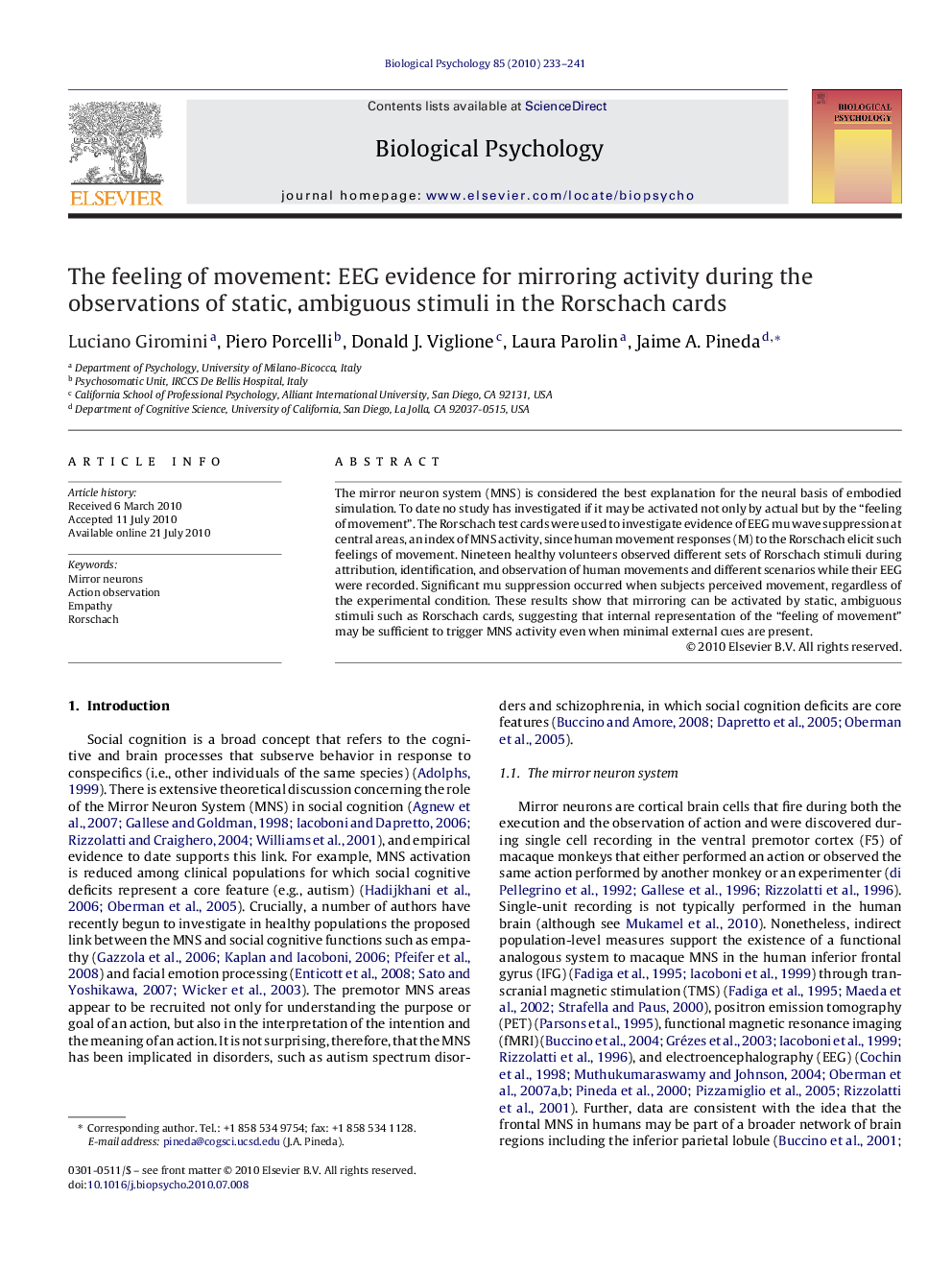| کد مقاله | کد نشریه | سال انتشار | مقاله انگلیسی | نسخه تمام متن |
|---|---|---|---|---|
| 921360 | 920770 | 2010 | 9 صفحه PDF | دانلود رایگان |

The mirror neuron system (MNS) is considered the best explanation for the neural basis of embodied simulation. To date no study has investigated if it may be activated not only by actual but by the “feeling of movement”. The Rorschach test cards were used to investigate evidence of EEG mu wave suppression at central areas, an index of MNS activity, since human movement responses (M) to the Rorschach elicit such feelings of movement. Nineteen healthy volunteers observed different sets of Rorschach stimuli during attribution, identification, and observation of human movements and different scenarios while their EEG were recorded. Significant mu suppression occurred when subjects perceived movement, regardless of the experimental condition. These results show that mirroring can be activated by static, ambiguous stimuli such as Rorschach cards, suggesting that internal representation of the “feeling of movement” may be sufficient to trigger MNS activity even when minimal external cues are present.
Research highlights▶ The ambiguous, static Rorschach cards that elicit human movement (M) responses are considered indices of higher cognitive functioning associated with the activation of mirror neurons. ▶ Activity in the human Mirror Neuron System has been correlated with activity in the EEG mu frequency band (8–13 Hz recorded over sensorimotor cortex). ▶ Significant EEG mu rhythm suppression occurs when subjects perceive human movement (M) responses in the Rorschach cards. ▶ The internal representation of the “feeling of movement” may thus be sufficient to trigger MNS activity even when minimal external cues are present.
Journal: Biological Psychology - Volume 85, Issue 2, October 2010, Pages 233–241